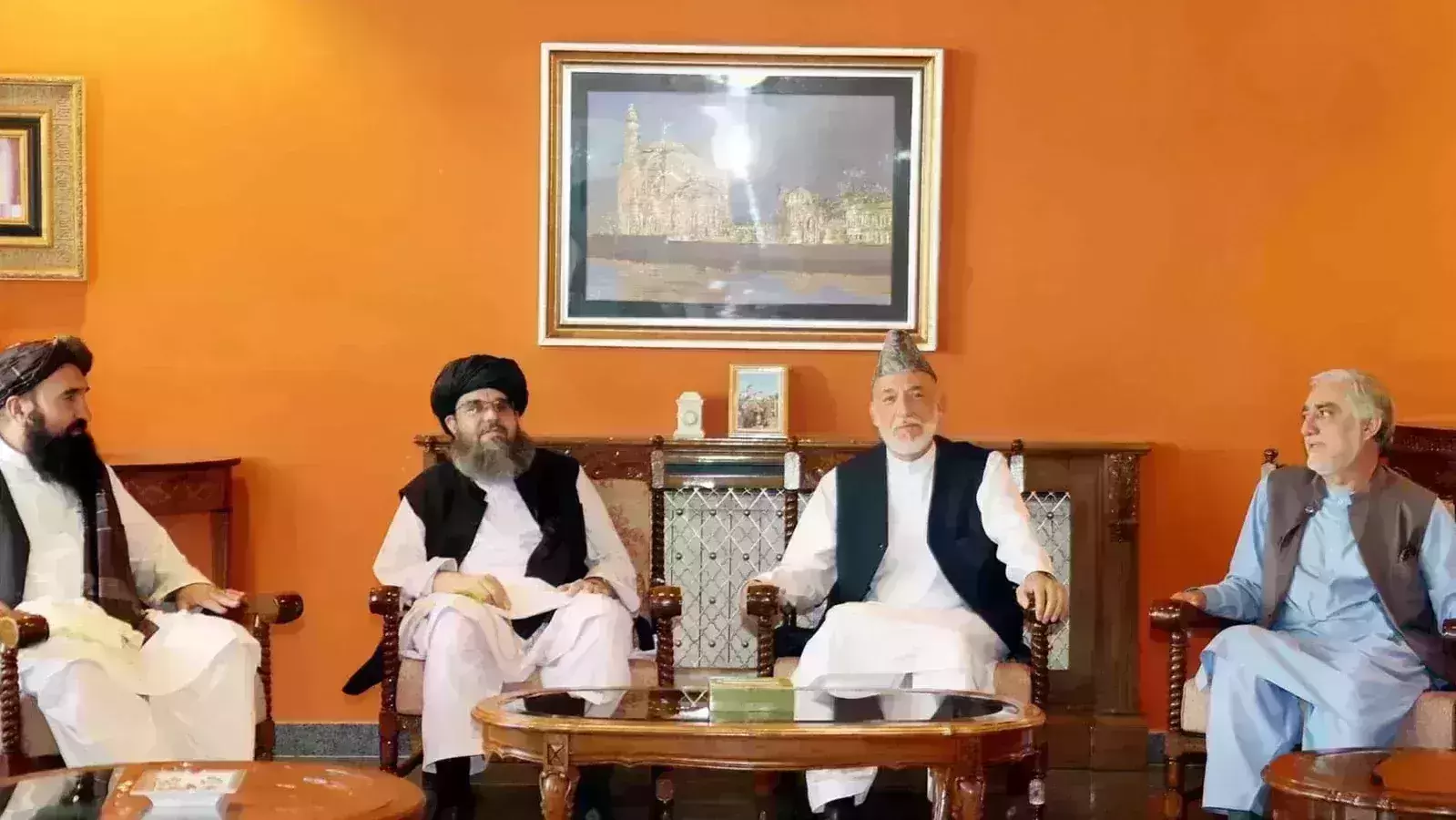
Taliban era to begin in a few hours- enormous challenges ahead
text_fieldsThe Taliban is reportedly all set to announce a new government in Afghanistan today as reports suggest that the country is slipping into poverty due to a shortage of adequate food supply after the US withdrawal. The regime has national and international pressure over it to establish a tolerant government to avail international humanitarian aid.
The proposed Taliban government will reportedly be on the lines of the Iranian leadership where its top religious leader Mullah Hebatullah Akhundzada will adorn the title of Afghanistan's supreme authority. The new administration is expected to be announced after today's Friday prayer, according to Taliban officials with knowledge ofthe development.
The consultation and discussion on the new government have already been made to finalise the structure of the government. As per the new structure, the country's president will be below the supreme leader.
In the new set-up, 60-year-old Mullah Akhundzada will be the Supreme Leader of the Taliban government, in the pattern of the Iranian leadership. In Iran, the sSpreme Leader is the highest political and religious authority of the country. He ranks above the president and appoints the heads of the military, the government, and the judiciary. The Supreme Leader has the final say in the political, religious and military affairs of the country.
Mullah Akhunzada will be the leader of the government and there should be no question on this, Mufti Inamullah Samangani, a senior official in the Taliban's information and culture commission said, indicating that the President will work under his oversight. Mullah Akhunzada as the top religious leader of the Taliban has been serving at a mosque in the Kachlaak area of Balochistan province for 15 years.
Mullah Abdul Ghani Baradar, a co-founder and deputy leader of the movement who was imprisoned in Pakistan, is likely to be appointed head of government.
Other Taliban officials expected to hold senior positions include Sirajuddin Haqqani, another deputy leader, and Mohammad Yaqoob, the son of the Taliban's founder Mullah Muhammad Omar, who died in 2013.
Samangani said that under the new governmental setup, governors will control the provinces, while the district governors will be in charge of their respective districts.
The Taliban have already appointed governors, police chiefs and police commanders for provinces and districts. The name of the new governance system, the national flag and the national anthem are yet to be finalised, he said.
Women's Protest
Meanwhile, there is increasing apprehensions over women's safety and their well-being under the new regime. Dozens of women are reported to have held a rare protest in Herat demanding the right for women to work under a new regime that faces enormous economic hurdles and deep public mistrust.
Though the Taliban vowed that what they are visualising is an inclusive regime where women will be included, but the countries that supported Afghanistan have not fully taken its word.
Sher Mohammad Abbas Stanikzai, deputy leader of the Taliban political office in Doha, on Thursday, told foreign media channels that women and members from all tribes in Afghanistan will be part of the new government set-up.
Deepening Economic Crisis- The Challenge
Following the US withdrawal and the Taliban taking over power, Afghanistan has already been in a famine state due to several reasons, including the internal feud between tribal leaderships and sporadic terrorist attacks despite humanitarian pushing by the UN and the US.
At present, all the financial aid the country has been getting has been stopped. The US and the European Union have still doubts about the Taliban's promises of its soft-minded approach in the governance, prompting them to warn the Taliban that further assistance and financial packages will follow depending on their activities in power.
The EU is said to have made their stand clear on Taliban that it will not recognise the regime until it forms an inclusive government, respect human rights and provide unfettered access for aid workers.
The UN warned of an impending humanitarian catastrophe across the country, the home of over 40 million people, citing severe drought, growing food insecurity and most important of all, - the upheavals created in society as a result of a 20-year war that forced thousands of families to flee their homes.
Meanwhile, the UN said it had restarted humanitarian flights to parts of the country, linking the Pakistani capital Islamabad with Mazar-i-Sharif in northern Afghanistan and Kandahar in the south.
Mary-Ellen McGroarty, the World Food Programme's country director in Afghanistan, said that a horrendous situation is unfolding in the country as the UN-supplied food stocks could only be used till the end of September. Since the Taliban takeover, civil servants have not been paid, the currency has fallen and banks have limited weekly withdrawals to $200.
The Taliban want to have friendly relations with the European Union, the US and India, and members of the Taliban political office in Doha are in close contact with different foreign countries, he said.
With the inputs from Agencies






















